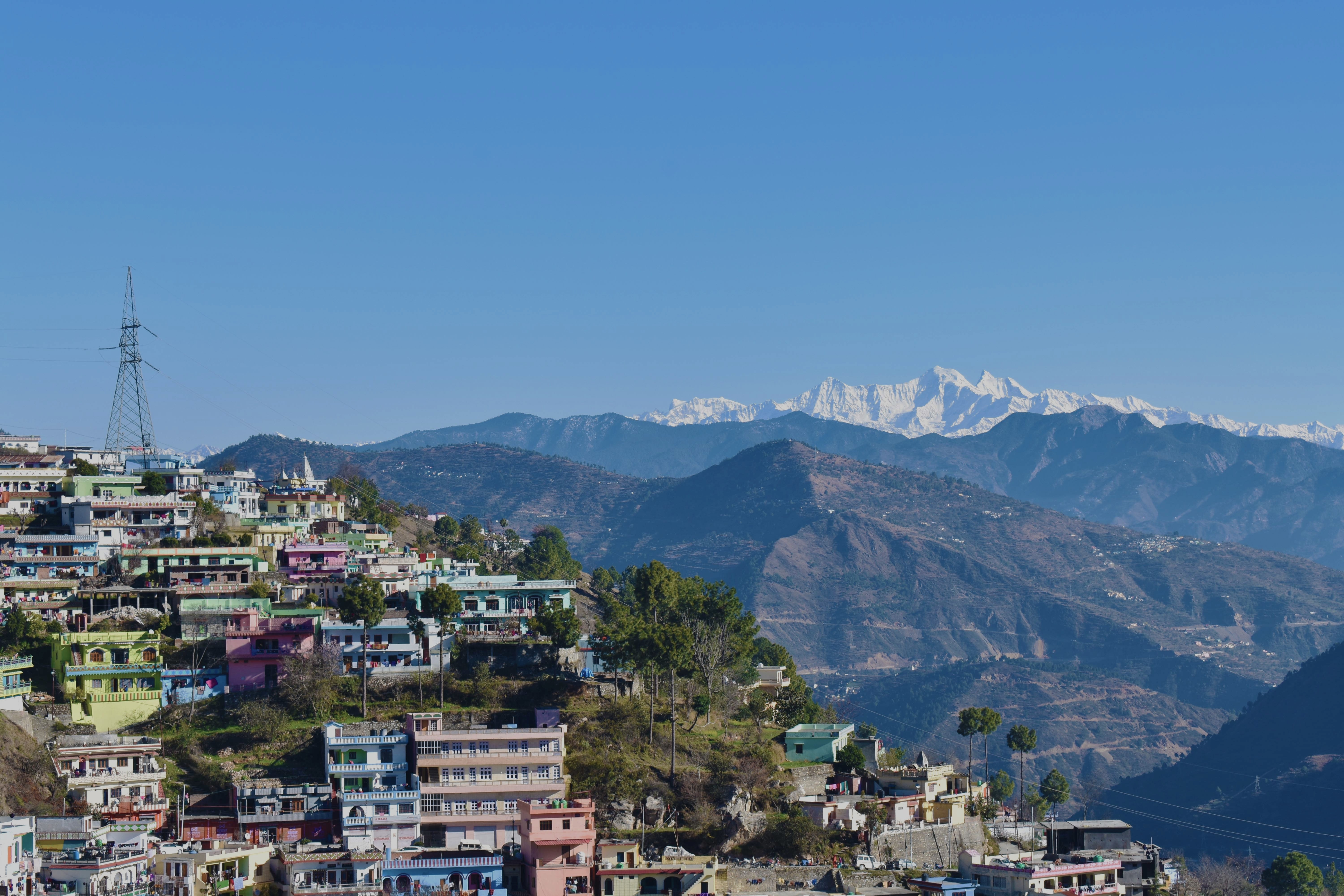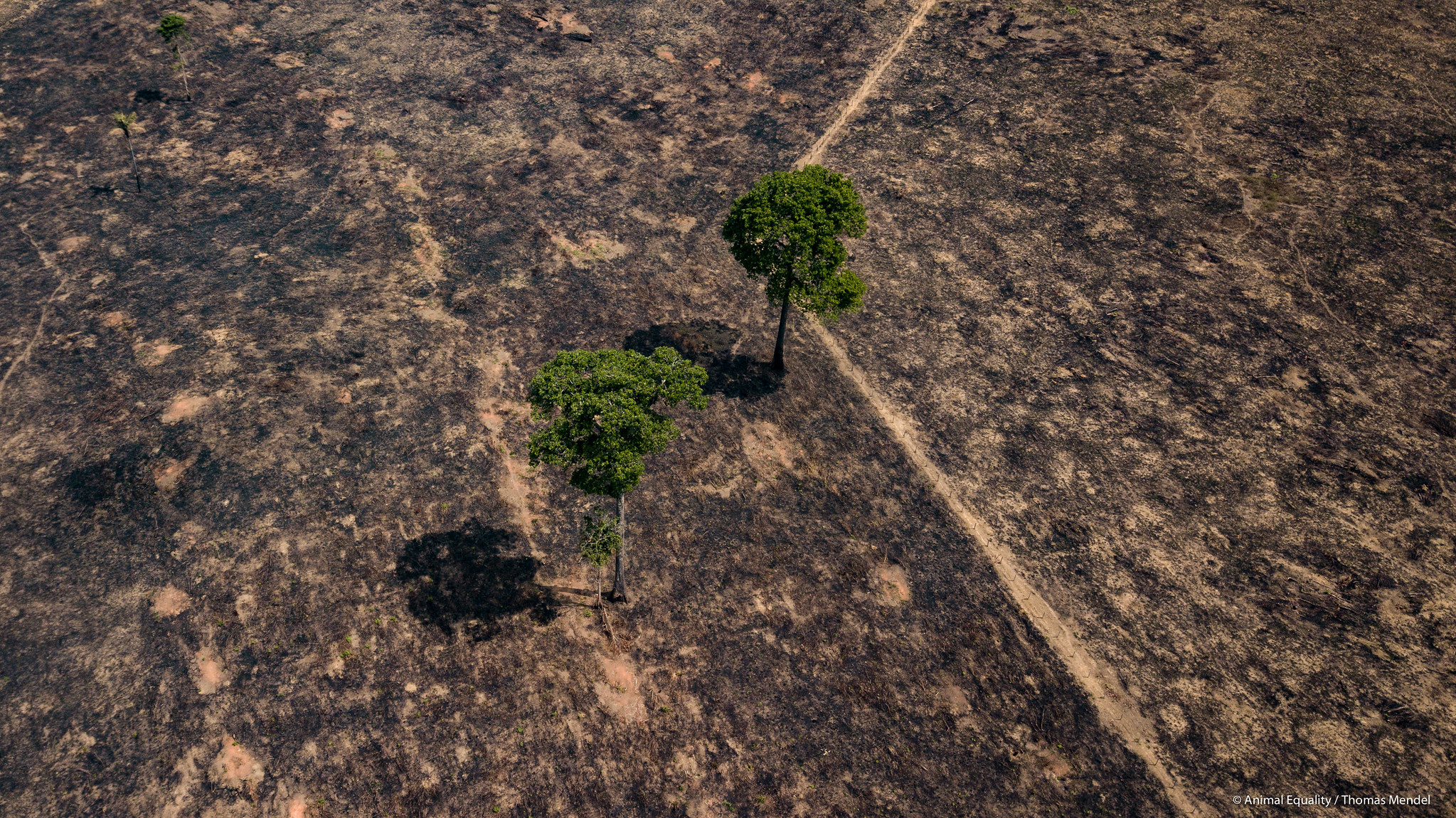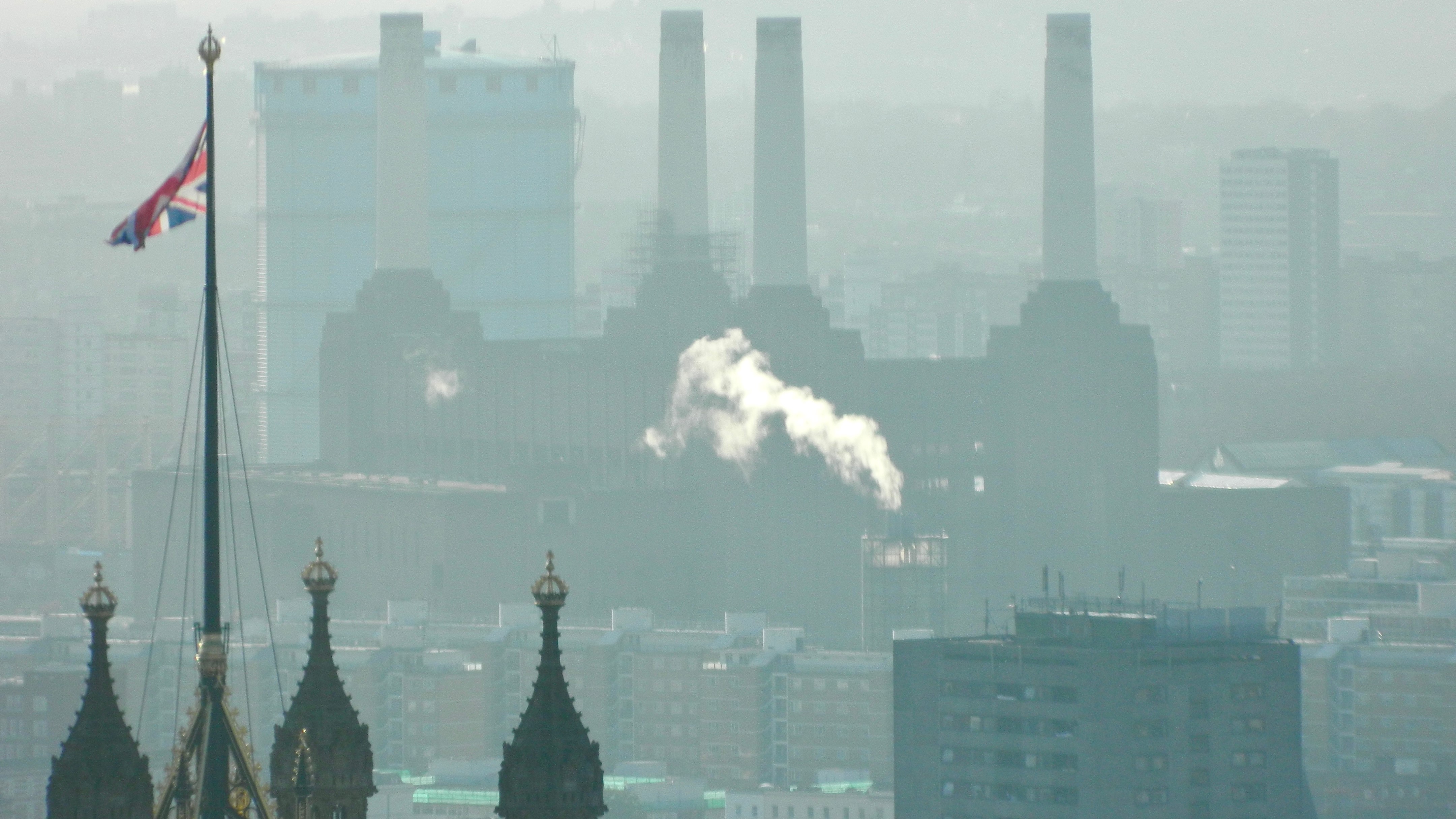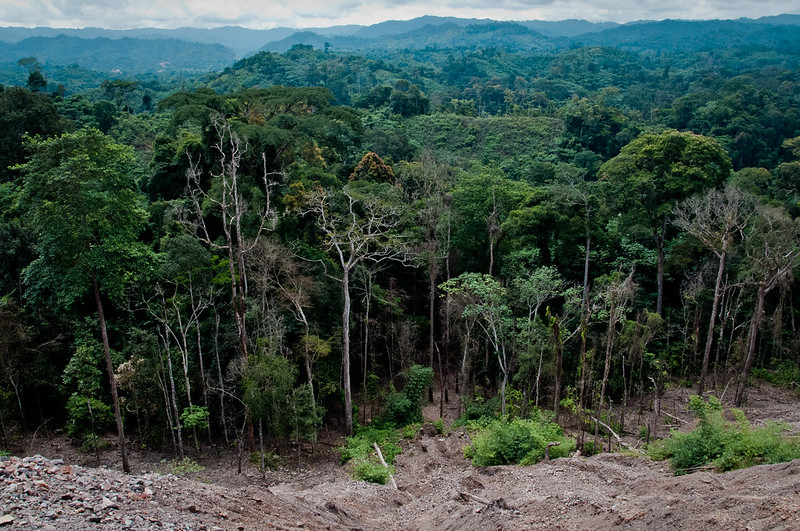On Friday 21 January 2022, Tasneem Essop gave an online lecture on ‘Outcomes of COP26 and where next on Climate?’ as part of the Cutting Edge Issues in Development Lecture Series for 2021/22. Tasneem Essop is currently the Executive Director of Climate Action Network International (CAN-I). The discussant for this lecture, Tim Gore is the head of the Low Carbon and Circular Economy programme at the Institute for European Environmental Policy (IEEP). Read what MSc students Leah Trotman and Meng Jin took away from the lecture below.
You can watch the lecture back on YouTube or listen to the podcast.
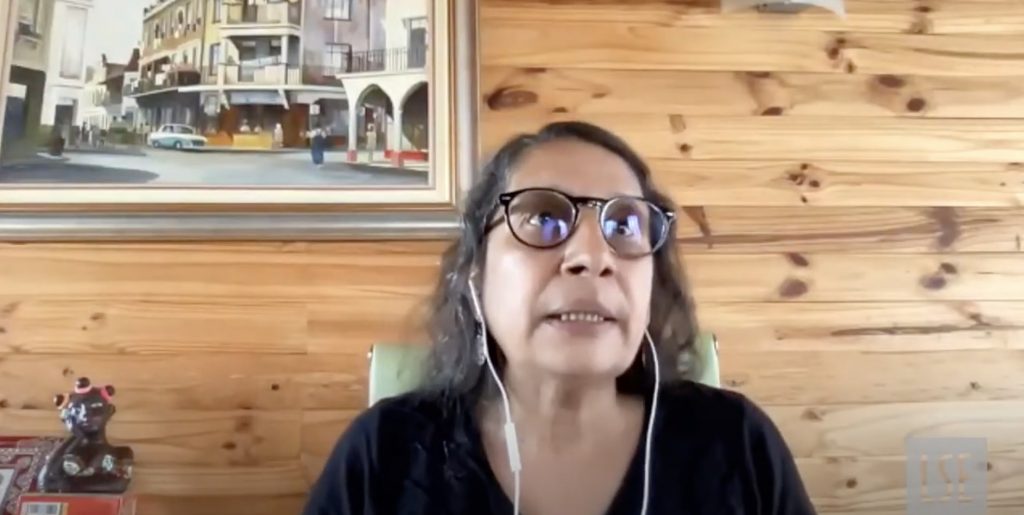
Held in Glasgow, Scotland in November 2021, the 26th Conference of the Parties (COP26) was characterised as the “last chance to keep 1.5C alive“. The previous COP in Madrid had not been successful. Millions across the world, especially those in low and middle-income countries (LMICs), were experiencing multiple compounding crises—the pandemic, vaccine apartheid, record-breaking climates, increasing poverty, and extreme weather events. As such, all eyes were on COP26, wondering whether it would keep 1.5C alive and deliver climate justice for those most impacted by the climate crisis. Through a ‘climate justice’ lens, guest lecturer Tasneem Essop argued that, in some ways, COP26 did deliver. But, in many other ways, it did not.
Essop, the Executive Director of Climate Action Network International, opened her lecture by explaining the use of climate justice as a framework to discuss the outcomes of COP26. Recognising that climate change serves to worsen already existing crises, Essop posited that a climate justice lens allows us to address issues of inequality, human rights abuses, poverty, and power while tackling the climate crisis. Additionally, she argued that using the climate justice lens makes clear the responsibility rich countries have to LMICs—those who have least contributed to climate change but are now, unfairly, facing the brunt of climate change.
Against this background, Essop argued that, in regards to climate justice, COP26 delivered on some things but mostly did not. Yes, there was a commitment to double adaptation finance by 2025. But, whether or not governments will follow through is another question. She pointed to the unfulfilled 2015 promise by rich countries to provide $100bn by 2020 to ‘developing countries to fund climate action.’ To this date, only $79.6bn was put forth in 2019. Additionally, many announcements, initiatives, and agreements at COP26 (some made outside of the formal lateral process) are not on track to keep us below 1.5C. Further, these initiatives lack mechanisms of accountability making it hard to decipher what exactly they promised and to whom.
Other wins from COP26, according to Essop, include the first-ever mention of fossil fuels. But, even she was hesitant to call it a ‘full win’ (and I agree) considering the dramatic language debate surrounding fossil fuels (“phase out” versus “phase-down”) that happened near the end of the conference. Additionally, although studies have estimated that developing countries will lose a combined total of approximately $400bn and up by 2030 due to loss and damages brought on by climate change, there was no commitment at COP26 to establish a finance committee for loss and damage. Rather, there was a promise to engage in ‘dialogue’ to discuss future action—whatever that means.
So, in short, COP26 mainly did not deliver on climate justice. And, as with many recent climate news stories, lecture attendees were met with a pretty bleak future. Thankfully, Essop did not leave us there. At the end of her lecture, she suggested some steps forward:
- First, we need to intenstify the work and fights of all, especially governments and non-government organizations to ensure climate and social justice.
- Second, our economies and societies must undergo a radical transformation (including a just transition) in order need to address our current climate crisis.
- Third, fossil fuels must remain firmly on our agenda–not just for future COPs but everyday.
- Lastly, finance especially related to loss and damage for LMICs must be delivered.
In addition, I argue that health must be placed on the agenda as well. Disappointingly, there was no mention of the linkages between climate change and health in the main outcome document of COP26—the Glasgow Climate Pact. Considering the 2015 Lancet Commission on Health and Climate Change named climate change “the world’s largest public health threat,” this omission is cause for concern. Climate change not only exacerbates existing health inequalities, but it also creates new health problems threatening to impact the health of every single person on this planet. Another COP without explicit mention of the linkages between health and climate change will be a failure.
Lastly, considering this lecture was given in an academic setting, it would be remiss of me to not mention another one of Essop’s calls to action, particularly related to the role of universities in the climate movement. Recognising the increase in scholarship on climate change by professors and student researchers, she applauded academia. But, she also pushed a little further and said, “Now is not the time to hide behind academic protocols and diplomacy [which we as professors and students so often feel trapped behind]. “Now is the time to talk truth to power.” I could not agree more and am interested to see how institutions like the London School of Economics, across the United Kingdom, and across the world reckon with this charge in years to come.
Leah Trotman
_______________
From “keeping the 1.5 degrees alive” to “build back better”
Two months after the 2021 Glasgow COP26 climate negotiations, the LSE Department of International Development invited Tasneem Essop and Tim Gore to the Cutting-Edge Issues lecture series, discussing two basic but critical questions: what are the outcomes of COP26 and what’s next? Or to put it in another way, did COP26 respond to what the world wanted?
One of the key narratives in the pact of COP26 and the aim of Glasgow was to “keep the 1.5 degrees alive” in limiting global warming as a new version of the “doing-the-right-thing” narrative. The UK government has drawn great attention to its achievement of climate mitigation, which secured near-global net-zero in NDCs (Nationally Determined Contributions) from 153 countries. This sounds familiar in many ways as we have witnessed a series of COPs attempting to address the 1.5-degree issue but failing to do so. After all, there is a difference between the “commitment” of countries to come back in Egypt COP27 with enhanced mitigation targets, and substantial, feasible, ready-for-delivery national plans.
Tasneem Essop reminded us with insights derived from her past experience as an activist that civil society can, and did make a difference in terms of climate negotiations. Movements and protests did exert power to push policymakers to address certain issues such as phasing out fossil fuel as a formal agenda in this COP26. However, getting them to discuss fossil fuels is far from sufficient to mitigate carbon emissions. Glasgow failed to deliver on the financing of climate actions, Loss & Damage (L&D), and the climate justice issue – as climate change and its impacts means different things to people around the world. With her positive outlook on the power of climate activism, Tasneem also left me with an inspiring message: the tactics of denial and delay of some people do not excuse a failure to act yourself. Governments, multilateral institutions, and individuals still have the potential to do better.
Tim Gore further extended from Tasneem’s argument that COP26 didn’t deliver on the climate justice issue. He began with his work on Carbon inequality in 2030 on the projection of vertical inequality of who is taking responsibility – focusing on the responsibilities of individuals within countries, instead of on differentiated responsibilities between countries. Given that climate justice is inherently intersectional, and the pandemic also adds to the volatility of addressing this issue, the IEEP’s research may provide strong evidence that income distribution may largely affect individuals’ emissions consumption gap within the 2030 horizon. He also mentioned that certain countries should take more responsibilities with stronger targets, especially after Biden’s remarks in Glasgow refusing to end coal mining. The UK, with reasonably stronger mitigation targets together with EU climate legislation progress, can be our next focus.
What I think has been obscured and understated both in Glasgow and this discussion is climate adaptation. Tim mentioned that people have been reluctant to talk about adaptation because this sounds like admitting that human beings have failed. It also seems odd that so many efforts have been made to push for adaptation and addressing loss and damage; the doubling-financing goal for developed countries (aiming to double the funding to adaptation by 2025) only came out in 2021. One possible explanation is that adaptation is closely related to loss and damage, which points to the differentiated responsibilities of different economic development paths. Accepting a financial responsibility for this issue sounds like a bad deal to developed countries, who are currently denying the necessity and rationale for compensating loss and damage in developing countries. Adaptation also involves justice for the most vulnerable, as they are the most sensitive to climate risks, and the least resilient after climate disasters.
What are we seeking for a “build back better” world? As the window of 1.5 degrees is closing, what’s expected here is more extensive efforts of national-level governments, both in ambitions and actions. Then, the future of climate negotiations require preparation for L&D and adaptation – not just funding them, but truly recognising the significance of building climate resilience for all of us in an increasingly volatile world.
Meng Jin
_______________
The next guest lecture will be with Irungu Houghton on Friday 28 January 2022 on ‘Human Rights Organising in Africa During a Global Pandemic’. LSE Students, Staff and Alumni can register here. External audiences can join the lecture via YouTube.
The views expressed in this post are those of the author and in no way reflect those of the International Development LSE blog or the London School of Economics and Political Science.


